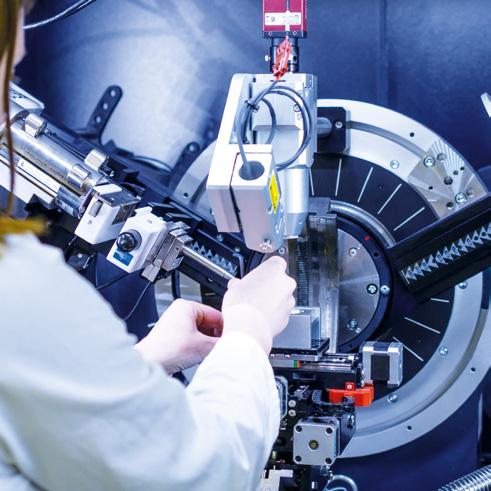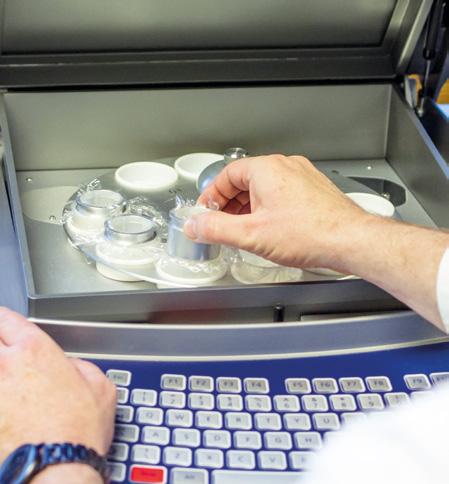
1 minute read
Glass or plastic?
from "foresee - recognising signs, devising solutions, shaping the future", Annual Report of H-BRS 2022
Sustainable redesign of the degree programme in chemistry
The Bachelor’s degree programme in Chemistry with Materials Science has new content and is now called Sustainable Chemistry and Materials. Director of the programme, Professor Steffen Witzleben, explains why this step was important.
Ɏ Why did you redesign the Chemistry with Materials Science degree programme?

» We have already had the “Blaue Schiene” (Blue Track) in the old degree programme since 2015 – an interdisciplinary module that familiarises students with the topic of sustainability. In 2022, we finally made changes to the degree programme itself as part of a re-accreditation procedure because we wanted to significantly strengthen the sustainability aspect.
Ɏ How did the redesigning process work?
» The students were part of the process from the beginning and contributed their ideas. In workshops each with four to six students, mostly from the fifth semester, we discussed how we could improve the degree programme. Which modules needed to be revised? What is important from a student’s perspective? What is going well, what is going poorly? It quickly became clear that sustainability is a huge topic in chemistry and needed to become a more integral part of the programme.
Ɏ Which study content has changed specifically?
» We have created many new modules that deal with sustainability. The module “Stoffströme im Wandel” (“Material Flows in Transition”), for instance, which deals with the topic of recycling from a chemical perspective. How can substances and materials be reused to create new products? Or, what happens during the lifetime of a chemical?
Ɏ Was internationalisation also a goal?
» Yes. We now offer English-language portions for almost half of all modules. This prepares students even better for their future professional life.
Ɏ How do you look forward to the coming winter semester when the new degree programme launches?
» We hope that the degree programme will enable students to deal with the topic of sustainability in a well-founded and competent manner. That they acquire basic knowledge and know how to use it critically. A good example is the question: Which is more sustainable - a glass bottle or a plastic bottle? That’s not so easy to answer in a general way, because glass is more difficult to produce, but it can be used for longer. Plastic, on the other hand, is thrown away more quickly, but is much easier and cheaper to produce. We want to sensitise the students to such issues.










